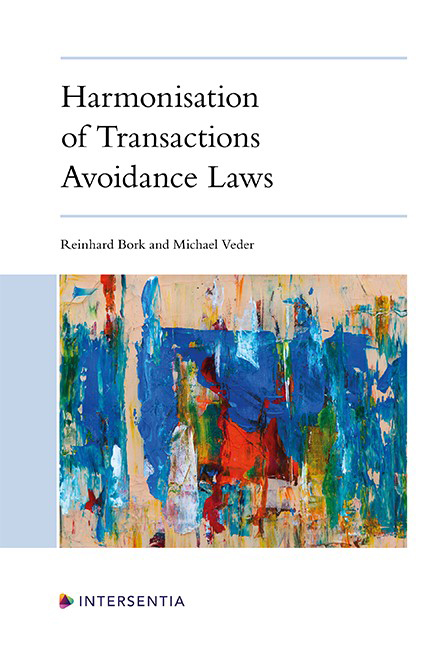Portugal
Published online by Cambridge University Press: 26 May 2022
Summary
A. INSOLVENCY LAW OF PORTUGAL
In the Portuguese Insolvency Act (hereinafter: IA) there are two general tools aimed at avoidance of transactions concluded by the debtor prior to the opening of insolvency proceedings. We shall call them:
1. Avoidance under Art. 120 to 126 IA;
2. Insolvency actio pauliana. (cf. Art. 127 IA), since it corresponds, basically, to the civil law/classic actio pauliana, laid down in Art. 610 to 618 of the Portuguese Civil Code.
1) STRUCTURAL APPROACH
In principle, avoidance under Art. 120 to 126 IA depends on three basic prerequisites:
1. performance within a time period of two years prior to opening of the insolvency proceedings;
2. detriment to the insolvency estate; and
3. bad faith of the counterparty.
Art. 121 IA lists a number of transactions which are subject to avoidance independently of these prerequisites provided they were perfected in certain suspect periods (we shall call this unconditional avoidance).
In principle, insolvency actio pauliana depends on two basic prerequisites:
1. the transaction is concluded after the incurring of the debt or, when concluded prior, with intent to cause detriment to the future creditor; and
2. detriment to the creditor.
When the transaction is onerous, it depends on an additional prerequisite:
3. bad faith of both debtor and counterparty.
2) PROCEDURAL APPROACH
Avoidance under Art. 120 to 126 IA may only be used by the Insolvency Practitioner.
Insolvency actio pauliana (cf. Art. 127 IA) may only be used by individual creditors.
3) FUNCTIONAL APPROACH
Avoidance under Art. 120 to 126 IA is designed to tackle transactions to the benefit of the insolvency estate (assets return to the insolvency estate to the benefit of the general body of creditors).
Insolvency actio pauliana is designed to tackle transactions to the benefit of the claimant creditor (as a rule, assets do not return to the insolvency estate but are directly seized in the patrimony of the debtor’s counterparty to the exclusive advantage of the claimant creditor).
This feature is “imported” from the civil/classic actio pauliana: Art. 616, 4, CC, applicable to insolvency actio pauliana ex vi Art. 127, 3, IA, lays down that the effects of actio pauliana shall only benefit the claimant creditor.
- Type
- Chapter
- Information
- Harmonisation of Transactions Avoidance Laws , pp. 451 - 458Publisher: IntersentiaPrint publication year: 2022



